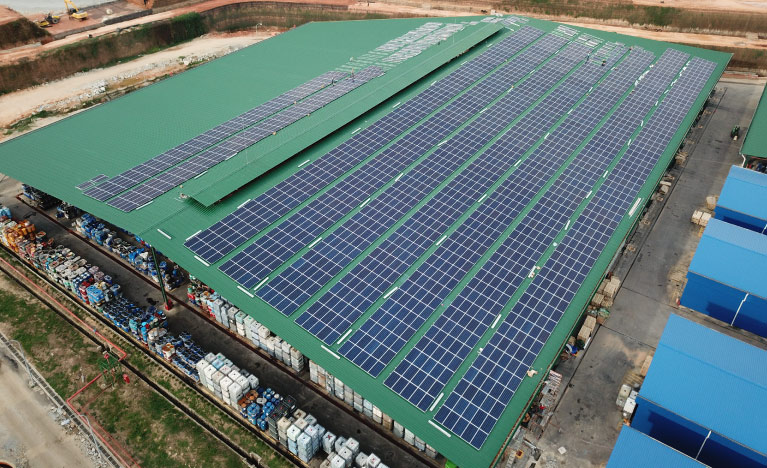| DATE | : 11 July 2019 |
|---|---|
| WRITER | : Ooi Tee Ching |
| PUBLISHER | : New Straits Times |
Photo: Kualiti Alam (Cenviro), 1MWp by Pekat Solar Sdn Bhd
KUALA LUMPUR: The government is committed to fulfilling its promise in the Pakatan Harapan manifesto to raise Malaysia’s installed capacity of renewable energy from two per cent last year to 20 per cent by 2025.
“We are on track. Although some detractors say this renewable energy target in our country’s power mix may seem ambitious, I believe it is doable,” said Energy, Science, Technology, Environment and Climate Change Minister Yeo Bee Yin.
In making renewable energy financing more attractive, Yeo said the government had expanded the list of assets available for the Green Investment Tax Allowance from nine to 40 items.
Many of these are renewable energy items for Biogas, Biomass and Small Hydro installations.
Yeo was officiating at the opening ceremony of the Evolution of ESG Investing seminar hosted by Malayan Banking Bhd and Bursa Malaysia Bhd here today.
Also present were Bursa Malaysia chief executive officer Datuk Muhamad Umar Swift, Bursa Malaysia chief commercial officer Selvarany Rasiah and Maybank Kim Eng Group chief executive officer Ami Moris and Maybank Investment Bank Bhd chief executive officer Fad’l Mohamed.
In February this year, the government called for bids for RM2 billion projects under the third round of the large-scale solar (LSS) scheme to increase electricity generation from renewable energy.
Yeo said the government would continue to host more bids for LSS power projects.
“In the next round, there will be some changes on how we will tender the LSS project. It will be more innovative to lower costs,” she added.
Yeo expects commercial and industrial buildings to tap into solar and be early adopters of the revised Net Energy Metering (NEM) scheme.
The NEM offers those who opt for solar energy lower tariffs, tax incentives, solar leasing programmes, and reduced electricity bills through the one-on-one offset, where every 1kWh exported to the grid will be offset against 1kWh consumed from the grid.
It was reported that the government had allocated a 2019 NEM quota of 500 MW, with 450 MW allocated for commercial and industrial buildings, and the remaining 50 MW for residential buildings.


